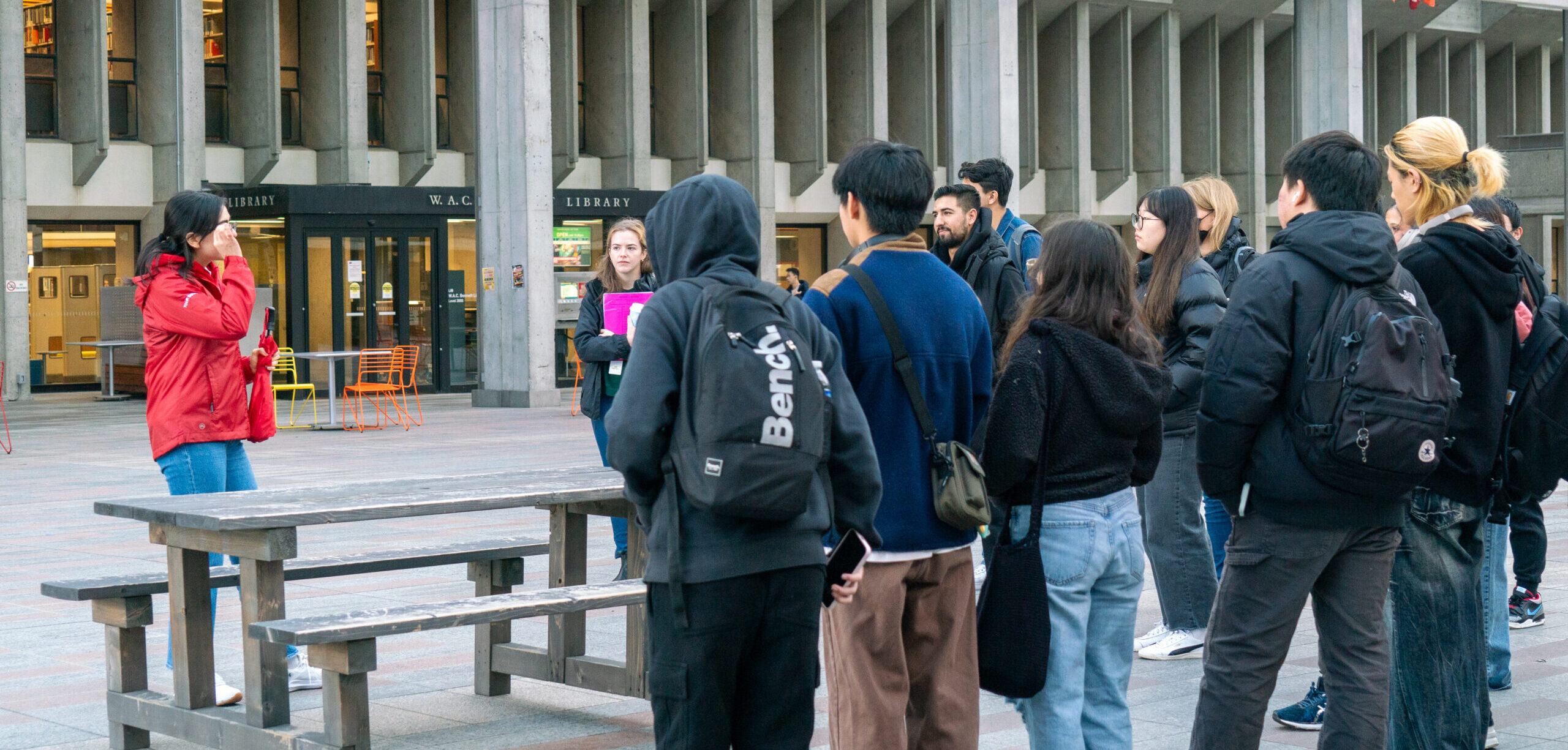
At Coquitlam College, the University Transfer Program gives students the flexibility to explore their academic interests while earning up to 60 credits of first- and second-year university-level courses. These credits are fully transferable to universities across Canada, opening the door to a wide range of degree programs.
With strong partnerships and recognition through the BC Council on Admissions and Transfer (BCCAT), Coquitlam College is committed to making your transition to university as smooth as possible. Whether you’re planning to stay close to home or continue your studies at a university in another province, our program is designed to support your goals—giving you the confidence and preparation to thrive in the next stage of your academic journey.
Exploring Your Options
At Coquitlam College, we understand the importance of choosing the right academic path. That’s why we host annual university fairs and arrange field trips to universities throughout British Columbia. These events provide students with the chance to meet faculty and advisors, allowing them to experience university life up close and explore various program options.

To enter our University Transfer Program or Associates of Arts Program, you must have:
- A high school diploma or school completion certificate (minimum 60% average)
- A vocational/technical/polytechnic diploma with a 60% or higher average
If your native language is not English, you may demonstrate fluency in English at the university level by submitting documents showing the minimum results on one of the following tests:
ENGL 099* |
ENGL 100 |
ENGL 101 |
|
IELTS (Academic)Reading |
5.5 Overall
5.5 |
6.0 Overall
6.0 |
6.5 Overall
6.0 |
PTE (Academic)Reading |
60 Overall
55 |
60 Overall
60 |
65 Overall
60 |
TOEFL IBTReading |
75 Overall
17 |
80 Overall
19 |
86 Overall
20 |
CAEL |
50-59 | 60-69 | 70 |
BC EN 12 |
50%-59% | 60%-66% | 67% minimum |
Duolingo |
95-104 95 literacy |
105 100 literacy |
110 105 literacy |
* RULES ON ENGL 099
The following courses are available to students while they complete their conditional English course: ACCT 101, 102, BIOL 101, 104, CHEM 100, 101, 110, CHIN 100, 101, CSCI 100, 130, FREN 101, 102, JAPA 100, 101, MACM 101, MATH 100, 101, 111, 120, 190, 197, PHYS 101, SPAN 101, STAT 101, 290, and 291.
Students will not be able to enter regular studies until they have passed ENGL 099.
- If you do not have any of the above assessments, you may be required to write the Coquitlam College English Proficiency Test for University Transfer/Associate Degree placement.
*** For upcoming English Proficiency Test dates, please contact our main office or speak to an Academic Advisor in Student Services for more information. ***
- Students may contact an Academic Advisor for more information about English entry requirements and equivalencies.
- Some of our programs may have additional requirements.
- A preparatory semester or semesters of English Studies may be required to qualify for the University Transfer Program or Associate of Arts Degree program.

Contact Us
If you’re ready to begin your university journey or have questions about the University Transfer Program, our advisors are here to support you every step of the way.
Email: [email protected]
Request to speak with an advisor—we’re happy to help!
Speak to an Academic Advisor
Or Speak to a RISIA (Regulated International Student Immigration Advisor)

To discuss study permit renewals/extensions, ability to work, PGWP eligibility and other IRCC-related questions with the CC RISIA:
Contact the main office by email or phone to set up an appointment.
The CC RISIA is in the Student Services office most Tues/Wed from 12:00pm to 1:00pm
Or by virtual appointment.
To speak directly to an Academic Advisor, drop into Student Services office or call 604-939-6633:
Monday-Thursday | 8:30am to 5:30pm(Vancouver time)
Friday | 8:30am to 4:00pm(Vancouver time)
Discover your Transfer Option
To see how Coquitlam College courses transfer to British Columbia’s universities, visit the online transfer guide of the British Columbia Council of Admissions and Transfer (BCCAT).

 Earn university-level credits while exploring diverse academic fields, with the flexibility to transfer to universities across Canada.
Earn university-level credits while exploring diverse academic fields, with the flexibility to transfer to universities across Canada.




